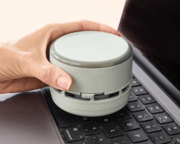11 medicinal herbs you can grow
Learning to use herbal remedies can be a great way to increase your self-reliance. While there’s no way to totally eliminate the need for modern medicine, herbal remedies can help you avoid some trips to the doctor.
Article continues below.
Unfortunately, good quality organic medicinal herbs can be expensive. Luckily, there are many healing herbs that are easy to grow at home. The following herbs are incredibly useful and easy to incorporate into your daily life.
1. Chamomile
Chamomile is probably best known as a calming bedtime tea to help people relax. However, it’s also believed to have a variety of other benefits. Chamomile has been used as a tea to help with several internal conditions. It’s not just for tea though! Chamomile can be used externally in salves due in part to its antimicrobial properties.
• Boosts immunity
• Helps people relax
• Eases menstrual pain
• Treats colds
• Soothes stomach aches
• Antimicrobial
• Soothes skin irritations
• Helps heal minor cuts and scrapes
2. Yarrow
Also known as achillea millefolium, yarrow may be one of the most important herbs for a true survival situation. It’s lovely, easy to grow, and most notably, it can be used to staunch bleeding. In fact, it earned the achillea part of its name from the legend that Achilles himself used this plant on the battlefield to save his wounded soldiers from bleeding to death.
Yarrow leaves work best for stopping bleeding when they’ve been dried and powdered and can be packed into a wound. However, in a true emergency, fresh yarrow will help. The leaves and flowers are also dried for use in tea believed to help with several ailments.
• Staunches bleeding
• Relieves anxiety
• Helps treat colds and flus
• Eases menstrual pain
• Helps reduce fevers
3. Mint
Mint is one of those herbs you don’t really have to “grow.” Once you plant a bit, mint will take care of itself. It spreads quickly and blocks out weeds. In fact, you may want to keep it contained in a pot or raised bed if you don’t want a yard full of it.
While mint is mostly known as a flavoring, it’s also a potent medicinal that has long been used in the form of tea to treat a number of ailments. Externally, it has been used in salves and lip balms for its cooling effect.
• Calms upset stomachs
• Reduces internal inflammation
• Lessens anxiety
• Soothes dry, irritated skin
4. Echinacea
A well-known herb frequently found in flower gardens, echinacea or coneflower has been used for centuries as a remedy. It’s most frequently used as a tincture, but it can also be used as a tea. All parts of the plant can be used in the tincture or tea (roots, leaves, flower) and frequently a mixture is included.
However it’s worth noting that if you want echinacea to keep coming back year after year, you should wait to harvest the roots until it’s well established.
• Treats colds and flus
• Heals infections
5. Goldenseal
•
While not typically considered a garden herb, goldenseal can be cultivated and is an important herbal remedy. In studies, it has been shown to have impressive antibacterial properties. Goldenseal roots are usually used as a tea or tincture.
It’s also a great option for those with limited garden space but some forest area as it is a woodland species. It does grow wild but has been severely over-harvested and is endangered, so wild patches should be treated with extreme care.
• Treats a variety of stomach ailments
6. Ginseng
•
Another woodland species, ginseng is a bit of an investment for your garden because it needs to grow for 4-7 years before you can begin harvesting the roots for teas and tinctures. It’s well worth the wait.
Ginseng is very expensive and is often seen as a cure-all. While its benefits aren’t fully understood, it is believed to help the body in several ways. Like goldenseal, wild ginseng is endangered and frequently over-harvested, so it should be treated with care.
• Helps the body adapt to stress
• Improves moods
• Increases energy levels
7. Calendula
•
Almost always used in salves, calendula has excellent anti-inflammatory properties. Its flowers have also been used to color food, dye cloth, and as a spice sometimes being substituted for saffron. While all calendula species can be used medicinally, calendula resina is prized by herbalists for its high resin content.
• Soothes and treats minor skin problems
8. Feverfew
Typically consumed as a tea or eaten fresh, feverfew leaves are good for more than just lowering fevers. In recent studies, daily consumption of feverfew has been shown to be very beneficial for migraine sufferers. Its vasodilator and anti-inflammatory properties also show a lot of potential for treating other ailments.
• Lowers fevers
• Decreases severity and frequency of migraines
• May help treat arthritis
9. Holy Basil
•
Holy basil tea has many medicinal benefits but holy basil is also frequently sprinkled in food for flavoring. As a medicinal, holy basil is a powerful antioxidant with antibacterial, antifungal, and anti-inflammatory properties. Although not a perennial, holy basil self-sows readily and is very easy to grow.
• Treats ulcers
• Lowers fevers
• Helps treat bronchitis
• Reduces digestive complaints
10. Bergamot
•
Not to be confused with bergamot oranges, bergamot or bee balm is a favorite of pollinators, gardeners, and herbalists alike. As an edible, bergamot leaves are typically used for flavoring fish and meat dishes.
Medicinally, the leaves are used in teas. Many Native Americans utilized the tea as a carminative. Bergamot can also be put into salves.
• Can be used as a stimulant
• Relieves flatulence
• Reduces fevers
• Helps with headaches and colds
• Soothes sore throats
• Treats minor skin infections
11. Lavender
•
A well-known fragrance, lavender is also a potent herbal remedy. It’s difficult to start from seed so it’s easiest to get cuttings or a plant from a local grower or friend. It’s used in so many ways including teas, salves, tinctures, essential oil, in food, and sewn into little sachets because its smell is believed to be relaxing.
• Helps with depression
• Treats insomnia
• Relieves stress related headaches
• Helps people relax
A medicinal herb garden is a great addition to any homestead or farm. It can help keep you and your animals healthy. It’s also an excellent way to prepare for disasters and increase your self-reliance. Plus it truly isn’t that hard!
There are so many powerful herbs that can easily be grown and used right at home. You don’t need to be an expert gardener, herbalist, or healer to plant a few of these and start making your own salves, tinctures, or teas. All you have to do is get started.





